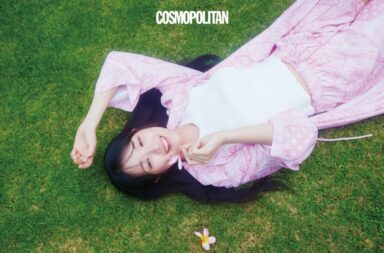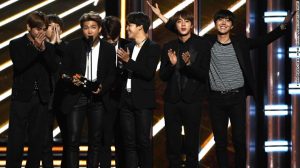 As K-pop further breaches the conciousness of Western media outlets, including many mainstream publications, the portrayal and coverage of the genre may not always be what K-pop fans envision. There have been multiple instances of articles, podcasts, videos, news reports, and more, being called out for inaccuracies and misrepresentations, the latest and most spectacular of them being the cancellation of Fuse’s K-Stop podcast.
As K-pop further breaches the conciousness of Western media outlets, including many mainstream publications, the portrayal and coverage of the genre may not always be what K-pop fans envision. There have been multiple instances of articles, podcasts, videos, news reports, and more, being called out for inaccuracies and misrepresentations, the latest and most spectacular of them being the cancellation of Fuse’s K-Stop podcast.
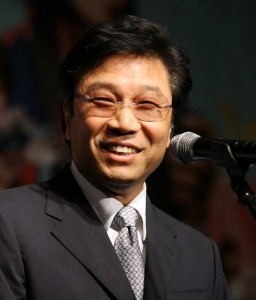
Qing: I don’t keep close tabs on Western (which, as Camiele noted in the last Roundtable, often implies American) coverage of K-pop, but the odd BTS article does make it to my Twitter timeline. A recent piece that really impressed me is The New York Times’ review of Love Yourself: Her. It’s concise at just over 400 words, but manages to be an excellent album review that also draws relevant links to the larger K-pop scene, and is almost free of the common pitfalls of many Western articles on K-pop.
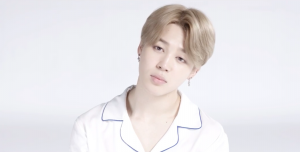 Even when it briefly broadens out to the K-pop scene, the writing trains focus on the music, deftly side-stepping sweeping generalisations about how “glossy” K-pop and its “squadrons” of boy bands and girl groups are. The only reason I said it is almost and not completely free of the common pitfalls is that, like many Western articles on K-pop, it falls back on comparisons to Western artists (think the “Shawn Mendes-esque guitar intro” of “DNA”, and categorising Jimin as a “lithe singer in the Justin Bieber vein”).
Even when it briefly broadens out to the K-pop scene, the writing trains focus on the music, deftly side-stepping sweeping generalisations about how “glossy” K-pop and its “squadrons” of boy bands and girl groups are. The only reason I said it is almost and not completely free of the common pitfalls is that, like many Western articles on K-pop, it falls back on comparisons to Western artists (think the “Shawn Mendes-esque guitar intro” of “DNA”, and categorising Jimin as a “lithe singer in the Justin Bieber vein”).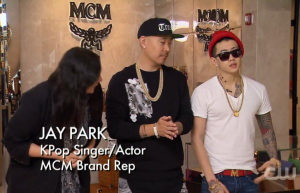 Leesha: I really like this write-up CNN did on Jay Park being signed to Roc Nation. They were a little late to the party, but the story isn’t just about breaking barriers or being the best or ignoring the efforts put in my other groups/artists. Jay was really…humanized? It felt like l was learning about the man behind the music, that there was a reason to him getting this huge opportunity that went beyond fandom or charts. Jay isn’t an “idol” anymore so there isn’t the hype and the effort into charting and streaming, etc. that groups like BTS get, so it’s easier for Western media to convert that hype into coverage. The Jay article is well researched and feels mature vs a lot of the BTS articles that are super repetitive.
Leesha: I really like this write-up CNN did on Jay Park being signed to Roc Nation. They were a little late to the party, but the story isn’t just about breaking barriers or being the best or ignoring the efforts put in my other groups/artists. Jay was really…humanized? It felt like l was learning about the man behind the music, that there was a reason to him getting this huge opportunity that went beyond fandom or charts. Jay isn’t an “idol” anymore so there isn’t the hype and the effort into charting and streaming, etc. that groups like BTS get, so it’s easier for Western media to convert that hype into coverage. The Jay article is well researched and feels mature vs a lot of the BTS articles that are super repetitive.
 Jennifer: I think I’m just hyper-critical, but I find a lot of Western coverage on K-pop to be so frustrating to read: like yes, they’re breaking barriers! They have an international audience! Yes, they’re Korean and yes, they use makeup and yes, they actually can make music that is enjoyable! There’s so little Western input that actually gleans beyond the surface and numbers and the hype over K-pop.
Jennifer: I think I’m just hyper-critical, but I find a lot of Western coverage on K-pop to be so frustrating to read: like yes, they’re breaking barriers! They have an international audience! Yes, they’re Korean and yes, they use makeup and yes, they actually can make music that is enjoyable! There’s so little Western input that actually gleans beyond the surface and numbers and the hype over K-pop. At the same time, I do have to admit that change has to start from somewhere. Increased exposure does spread the names of your faves, and makes people more aware. I’m not saying that authors shouldn’t be critiqued or that facts shouldn’t be checked, but if we take every single article in the Western market to extreme offense because it doesn’t explain everything about K-pop and its nuances perfectly or fully, then no one in the Western market is going to want to write about K-pop, and that’s not what K-pop fans wants. K-pop fans want to spread K-pop’s success. Maybe it’s not perfect, but getting more Western coverage about K-pop is the first step in that direction.
At the same time, I do have to admit that change has to start from somewhere. Increased exposure does spread the names of your faves, and makes people more aware. I’m not saying that authors shouldn’t be critiqued or that facts shouldn’t be checked, but if we take every single article in the Western market to extreme offense because it doesn’t explain everything about K-pop and its nuances perfectly or fully, then no one in the Western market is going to want to write about K-pop, and that’s not what K-pop fans wants. K-pop fans want to spread K-pop’s success. Maybe it’s not perfect, but getting more Western coverage about K-pop is the first step in that direction.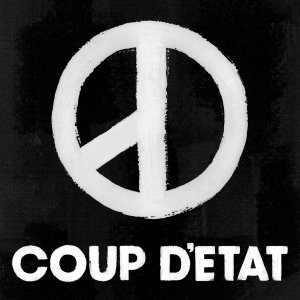 As such, when mainstream publications like Billboard and Fuse cover a new release, the knee-jerk reaction is for fans to use it as a bid for their group’s increasing relevance overseas. As the recent K-stop podcast controversy shows, however, one would benefit with treating such articles with a double helping of salt, especially when said coverage comes off as disbelievingly flattering.
As such, when mainstream publications like Billboard and Fuse cover a new release, the knee-jerk reaction is for fans to use it as a bid for their group’s increasing relevance overseas. As the recent K-stop podcast controversy shows, however, one would benefit with treating such articles with a double helping of salt, especially when said coverage comes off as disbelievingly flattering.Listening to any K-pop record (or any foreign language record, really) can prove to be a challenging experience for casual listeners simply due to the added communication barrier. You can also lose some key information in translation—even when you know what’s being said, there’s a layer of context missing. Still, just like any other type of music, a listener has the opportunity to fill in some of that context on their own; stripping Korean of its code is no different than reinterpreting a really dense English lyric.


